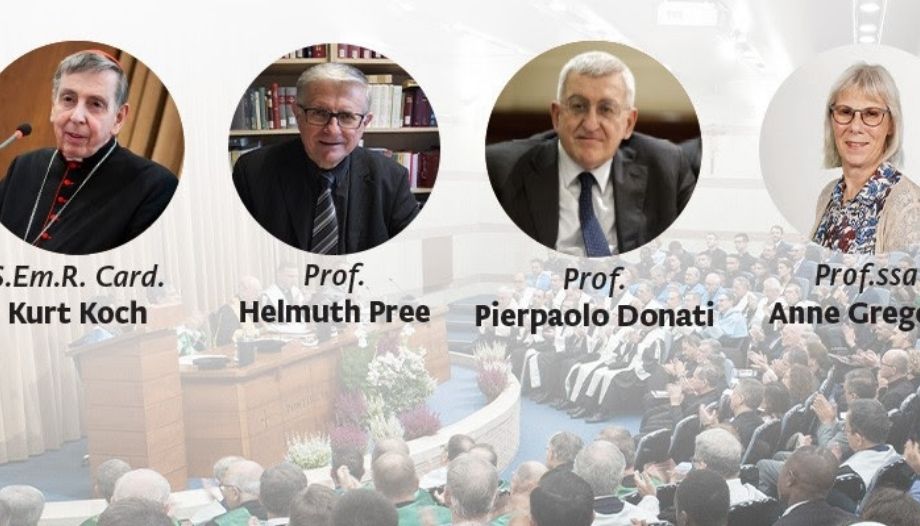On October 7, the opening ceremony of the new academic year 2025/26 will be held at the University of California, Berkeley. University of the Holy Crossin Rome. On its 40th anniversary, the ceremony takes on a special meaning: the awarding of four doctorates. Honoris Causa to outstanding personalities from the academic and ecclesiastical world. This is not just a celebratory gesture, but the choice of figures who embody, each in his own way, decisive dimensions for the life of the Church and contemporary society: unity, relationships, communication and justice. If we think about it, it is on these four axes where a large part of the cultural and spiritual challenge of our time is concentrated today, also recalled by the last pontiffs.
Unity as the horizon: Cardinal Kurt Koch
The degree in Theology is awarded to Cardinal Kurt Koch, Prefect of the Dicastery for Promoting Christian Unity. A theologian of solid formation and pastor with long experience, he has dedicated his life to promoting ecumenical dialogue. Former bishop of Basel and president of the Swiss Bishops' Conference, in 2010 he was called by Benedict XVI to head the Pontifical Council for Christian Unity, a position that Francis subsequently confirmed in the new Dicastery. In this context, his commitment to ecumenism is tireless and unquestionable. Therefore, at a time when divisions, even within the Christian world, risk becoming permanent fractures, the figure of Cardinal Koch becomes a sign of a theological service that is not limited to academic classrooms, but becomes a concrete gesture of reconciliation.
Society as a relationship: Pierpaolo Donati
The recognition of the Faculty of Philosophy goes, for its part, to sociologist Pierpaolo Donati, who has dedicated his research to radically rethinking the social sciences. A professor at the University of Bologna until 2016, Donati is known internationally as the founder of "relational sociology". With his proposal, he has overcome the reductionist categories of functionalism and individualism, placing the relationship at the center of social analysis. At the heart of his thinking are concepts such as relational reason and relational goods, which have found application in the most diverse fields: from citizenship to social policy, from welfare to the dynamics of multiculturalism.
Communication as a vocation: Anne Gregory
Also significant is the choice of the Faculty of Communication, with Anne Gregory, Emeritus Professor at the University of Huddersfield and one of the world's leading figures in strategic and ethical communication. A former president of the Chartered Institute of Public Relations in the United Kingdom and president of the Global Alliancehas led the international project that has defined the global competencies of the profession. Author of more than 150 publications, she has combined academic research and consultancy to governments, NGOs and companies, offering tools for a communication understood as social responsibility. In her thinking, communication is not a simple transmission of information, but a constitutive condition of human and social life. It can destroy and poison, as evidenced by the spread of fake news and hate speech, but it can also build peace, generate trust and foster collaboration.
Justice as a service: Helmuth Pree
Finally, the Faculty of Canon Law awards recognition to Professor Helmuth Pree, Austrian, professor at Linz, Passau and Munich, and collaborator for many years of Santa Croce. An ecclesiastical judge and consultant to the Dicastery for Legislative Texts, he has contributed with his more than 400 publications to the development of contemporary canon law. His work, which ranges from the fundamentals of law to concrete applications in ecclesiastical tribunals, shows how canon law is not a mere juridical construct, but a service rendered to justice and, ultimately, to the salvation of souls.
Four figures different in their backgrounds, disciplines and trajectories, but united by a common tension: that of thinking and serving the truth within the real dynamics of human life. A mission that the Pontifical University of the Holy Cross feels as its own and continues to project into the future.








